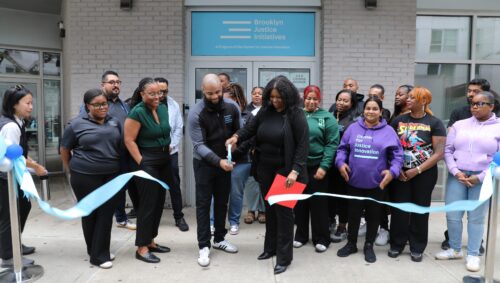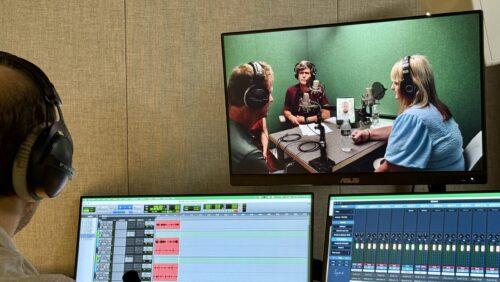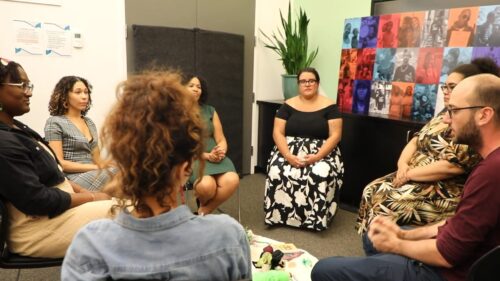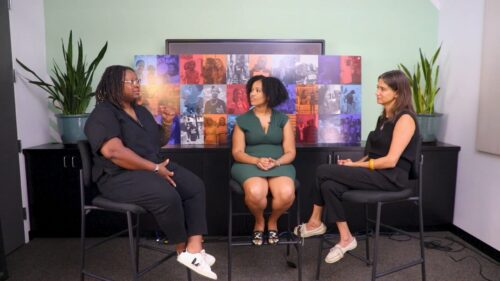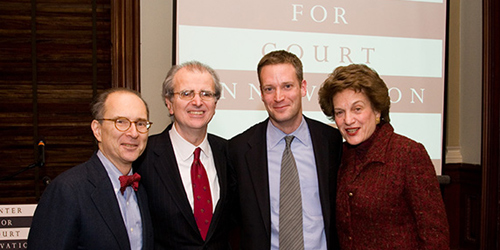Problem-Solving Principles
The following principles embody the collective experience of thousands of practitioners working to test new ideas and address chronic problems in the field of problem-solving justice. Over time, these principles have found their way into problem-solving initiatives in both big cities and small towns, in initiatives that address low-level offending and more serious crimes, and in projects that work with first-time offenders and chronic recidivists returning from prison.
Enhanced Information
Better staff training (about complex issues like domestic violence and drug addiction) combined with better information (about litigants, victims, and the community context of crime) can help improve the decision making of judges, attorneys, and other justice officials. High-quality information—gathered with the assistance of technology and shared in accordance with confidentiality laws—can help practitioners make more nuanced decisions about both treatment needs and the risks individual defendants pose to public safety, ensuring offenders receive an appropriate level of supervision and services.
Community Engagement
Citizens and neighborhood groups have an important role to play in helping the justice system identify, prioritize, and solve local problems. Actively engaging citizens helps improve public trust in the justice system. Greater trust, in turn, helps people feel safer, fosters law-abiding behavior, and makes members of the public more willing to cooperate in the pursuit of justice (as witnesses, jury members, etc.)
Collaboration
Justice system leaders are uniquely positioned to engage a diverse range of people, government agencies, and community organizations in collaborative efforts to improve public safety. By bringing together justice partners (e.g., judges, prosecutors, attorneys, probation officers, court managers) and reaching out to potential stakeholders beyond the courthouse (e.g., social service providers, victims groups, schools), justice agencies can improve inter-agency communication, encourage greater trust between citizens and government, and foster new responses—including new diversion and sentencing options, when appropriate—to problems.
Individualized justice
Using valid, evidence-based risk and needs assessment instruments, the justice system can link offenders to individually tailored community-based services (e.g., job training, drug treatment, safety planning, mental health counseling) where appropriate. In doing so (and by treating defendants with dignity and respect), the justice system can help reduce recidivism, improve community safety and enhance confidence in justice. Links to services can also aid victims, improving their safety and helping restore their lives.
Accountability
The justice system can send the message that all criminal behavior, even low-level quality-of-life crime—has an impact on community safety and has consequences. By insisting on regular and rigorous compliance monitoring—and clear consequences for non-compliance—the justice system can improve the accountability of offenders. It can also improve the accountability of service providers by requiring regular reports on their work with participants.
Outcomes
The active and ongoing collection and analysis of data—measuring outcomes and process, costs and benefits—are crucial tools for evaluating the effectiveness of operations and encouraging continuous improvement. Public dissemination of this information can be a valuable symbol of public accountability.
Appreciation is extended to the following who reviewed and commented on these principles:
Pam Casey, National Center for State Courts
Cait Clarke, consultant, former director of the National Defender Leadership Institute
William F. Dressel, The National Judicial College
John Goldkamp, Temple University
C. West Huddleston III, National Association of Drug Court Professionals
Steven Jansen, National District Attorneys Association
Wendy Lindley, Orange County (California) Superior Court
Judy Harris Kluger, New York State Unified Court System
Timothy Murray, Pretrial Justice Institute
Carol Roberts, Ramsey County (Minnesota) Community Corrections



